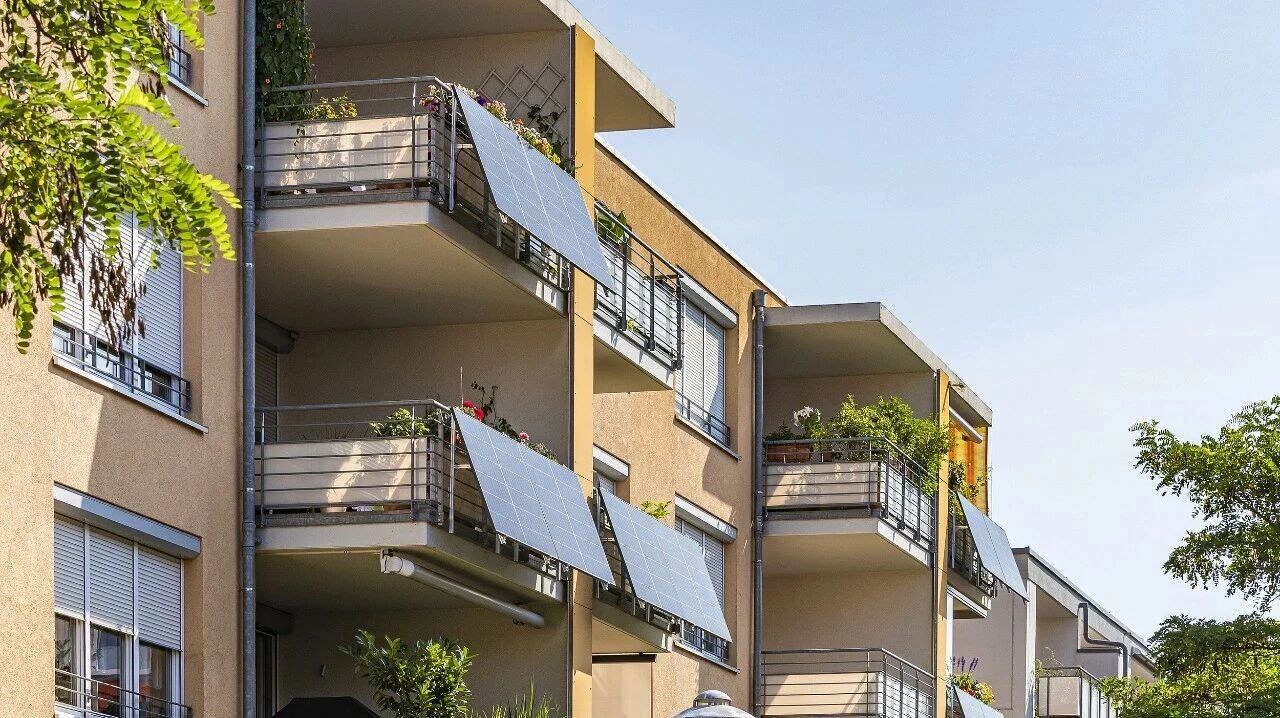Balcony PV systems—small solar panels installed on balconies for personal power generation—are becoming increasingly popular in urban areas. They are easy to install, reduce electricity bills, and support clean energy adoption.
But one question often arises: do balcony PV systems produce harmful radiation? Many people worry that solar panels, inverters, and cables might affect their health. Let’s explore the facts and clear up the myths.
Understanding “Radiation” in Solar Power
When people hear the word “radiation,” they often think of harmful forms like X-rays or nuclear radiation. However, not all radiation is dangerous. In the case of balcony PV, we’re mainly talking about:
-
Electromagnetic Fields (EMF) – generated by electrical devices.
-
Ionizing Radiation – like X-rays or gamma rays, which can damage cells (but solar panels do not produce this).
-
Ultraviolet (UV) Light – from the sun, not from the panels.
Do Solar Panels Emit Harmful Radiation?
The answer is no. Solar panels themselves do not emit harmful radiation. Instead, they:
-
Convert sunlight into electricity using photovoltaic cells.
-
Absorb UV radiation rather than releasing it.
-
Produce only a tiny amount of low-frequency EMF, comparable to everyday household devices.
In fact, having solar panels on your balcony may even reduce UV exposure indoors because they act as a shade.
What About Inverters and Cables?
The inverter—responsible for converting DC power from the panel into AC power for your home—is the main source of EMF in balcony PV systems.
However:
-
The EMF levels are very low and decrease rapidly with distance.
-
Studies show that inverter EMF is much weaker than Wi-Fi routers, microwaves, or smartphones.
-
International safety standards (like ICNIRP and WHO guidelines) confirm that these levels are safe for human exposure.
How Balcony PV Compares to Everyday Devices
To put it into perspective:
-
Sitting next to your Wi-Fi router exposes you to stronger EMF than standing near a balcony PV system.
-
Using a hair dryer or microwave produces more EMF than your solar cables.
-
Even your mobile phone in your pocket is a bigger source of radiation exposure.
Safety Standards and Certifications
Balcony PV products sold in the market undergo strict testing and certification, such as:
-
CE (European Conformity)
-
TÜV (German technical inspection)
-
IEC and UL international safety standards
These certifications guarantee that the systems are safe for home use and pose no health hazards from radiation.
Conclusion: Myth vs Reality
The idea that balcony PV systems cause radiation hazards is a myth. Here’s why:
-
Solar panels do not emit harmful radiation.
-
EMF from inverters and cables is minimal and far below safety limits.
-
Exposure levels are much lower than those from common household devices.
Instead of being a health risk, balcony PV systems provide real benefits:
-
Clean renewable energy.
-
Lower electricity bills.
-
Reduced carbon footprint.
So, if you’re considering balcony PV, rest assured: it’s safe, sustainable, and smart.
Frequently Asked Questions (FAQ) About Balcony PV and Radiation
1. Do balcony solar panels emit harmful radiation?
No. Solar panels do not emit ionizing radiation. They only generate a very small amount of electromagnetic fields (EMF), much lower than everyday household devices.
2. Are balcony PV systems safe for children and pets?
Yes. Balcony PV systems are designed with strict safety standards. The EMF levels are safe, and panels are securely mounted. Children and pets are exposed to less radiation from balcony PV than from TVs, smartphones, or Wi-Fi routers.
3. Do balcony solar panels interfere with Wi-Fi or mobile signals?
No. The EMF from solar inverters and cables is too weak to disrupt Wi-Fi, mobile phones, or other electronics.
4. Is there UV radiation from balcony PV panels?
No. Solar panels absorb UV radiation from the sun rather than emitting it. In fact, they can reduce UV exposure indoors by shading your balcony.
5. Are balcony PV systems certified for safety?
Yes. Most systems are tested and certified under CE, TÜV, IEC, and UL standards, ensuring they meet international safety requirements for radiation and electrical performance.
6. What produces more radiation: a balcony PV system or my household appliances?
Your household appliances produce more. For example:
-
A Wi-Fi router or smartphone emits stronger EMF than balcony PV.
-
A microwave oven or hair dryer produces much higher EMF levels than solar inverters.
Winpower Cable is a provider of connection solutions for the new energy system.
Our main products: Solar PV Cable, Energy Storage Cable, EV Charging Cable, Solar PV Cable Harness, Energy Storage Cable Harnesses, and Automotive Cable.
Winpower Cable has passed UL, TUV, VDE, CE, CSA,CQC Certification.
Our main markets: United States, Europe, Middle East, Southeast Asia. And we have 13 years of export experience.
Post time: Sep-23-2025

